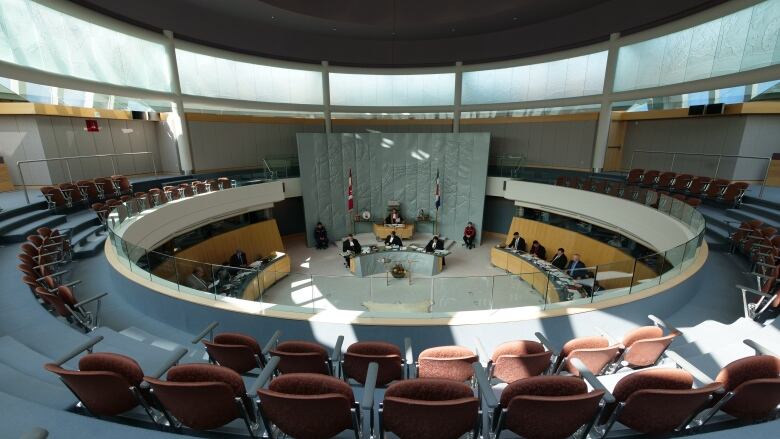MLAs push N.W.T. premier, cabinet for details on post-pandemic economic recovery plan
Cochrane: Until the health crisis is brought under control, a full economic recovery will be slow

A pair of N.W.T. MLAs called for more details on the territorial government's post-pandemic recovery plan as the legislative assembly resumed sitting on Wednesday.
Premier Caroline Cochrane acknowledged the territory's public health measures have placed an economic and financial burden on residents, and singled out the tourism industry, saying the pandemic has changed how the government will need to support it in the coming years.
"Until the health crisis is brought under control though, a full recovery of the N.W.T. economy will be slow," she said.
She pointed to investing in large-scale infrastructure projects with the help of the federal government in the hopes of kickstarting the territory's economic recovery.
But some MLAs pushed the premier and cabinet to provide more specifics on a promised recovery plan while lamentinga fractured relationship between the government and its business advisory council.
Last month, the council announced it would cease its regular meetings, saying it felt that economic recovery was not a focus of cabinet. The statement came after one of the council's chairs resigned. Two other members stepped down.
"It is deeply concerning to hear about the state of the business advisory council and its perception of cabinet," said Kam Lake MLA Caitlin Cleveland referencing a recent report in News North.
Cochrane said she was sorry to hear that the business community had "lost faith" in her, but said she heard the same thing when the decision was made to lockdown the borders and when the territory announced it was creating the $87-million COVID-19 secretariat.
"We made tough choices and it has paid off. We are probably the only jurisdiction in Canada that hasn't had a death from COVID. We're probably one of the only jurisdictions in Canada that hasn't gone into lockdown over Christmas," Cochrane said.
When Cleveland asked when the government would be sharing its yet-to-be released economic recovery strategy dubbed "Emerging Stronger," Cochrane said it was still in the draft stages.
She did commit to presenting the draft plan to the assembly's standing committee but could not promise it would be tabled during this session.
Yellowknife North MLA Rylund Johnson said there is a lot of debate of what can be in it, but the fact that a plan is not in place is a problem.
"There are tough decisions to be made, but those decisions have to be made. When will this cabinet present its plan for economic recovery and what's going to be in it?" he asked.
"Because absent [of] that plan, we will continue to be funded and controlled by the federal government."
Vaccine shipments expected to slow down
Shipments of the Moderna vaccine to the Northwest Territories are expected to slow down this month, but the territory's Health Minister Julie Green said the N.W.T. will still be able to hit its goal of vaccinating 75 per cent of adult residents by the end of March.
Responding to a question from Inuvik Twin Lakes MLA Lesa Semmler, Green said the second dose of the Moderna vaccine should be administered 28 days apart, but can be extended up to 42 days if necessary, echoing comments made last month by Canada's chief public health officer.
"At this time, we believe that everyone will be vaccinated within the 42 day limit. And if that's not the case, we'll certainly communicate that," she said.
As of Feb. 3, the territory had administered 12,241 first doses of the Moderna vaccine, with 125 others receiving their second shot.












_(720p).jpg)


 OFFICIAL HD MUSIC VIDEO.jpg)
.jpg)



























































































